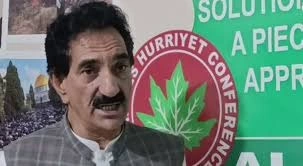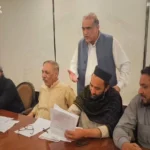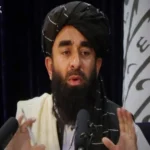Echoing Imran Khan’s Narrative
How Misleading Narratives Undermine Regional Stability and Misrepresent Pakistan’s Defensive Counter-Terrorism Strategy?
Misrepresentation in the face of Security Realities
The tweet of former Prime Minister Imran Khan has made the debate that broke out over Pakistan counter-terrorism approach in Khyber Pakhtunkhwa (KP) highly controversial again. Khan pressed the Pakistan Army not to take any military action in the region but rather engage Afghanistan in talks. Capitalizing on this, different Afghan media and social media influences have presented the military activity in Pakistan to be hostile to Afghanistan, which, in addition to being false, has a grave danger to portray.
The Pakistan army campaigns are not an act rooted in anti-Afghan behavior contrary to the narrative being peddled by media outlets like TOLOnews, Shamshad Network, Ariana news among others. Such operations particularly focus on Tehrik-i-Taliban Pakistan (TTP), which is a proscribed and internationally designated terrorist organization that has carried out hundreds of attacks on the Pakistani territory. The representation of Pakistani defensive measures as offensive stance is posing a risk in the spirit of partnership that should be applied in the long-term peace in the region.
Attacking terrorism, not affiliations
The motivation behind military action of Pakistan in KP is neither expansionist nor enmity with Afghanistan. They directly react towards the TTP militants who have been waging deadly attacks on Pakistani civil population, security forces as well as infrastructure. These are also intelligence operated, pinpointed and finely tuned in such a way that there are no civilian casualties.
That this counter-terrorism action poses a risk to Afghan sovereignty is a dishonesty. The continuous incursions by TTP across the border in the launching of attacks in sanctuaries based in Afghanistan are a blatant assault to the security and integrity of Pakistan. In this regard, the activities of Pakistan are not aggressive but rather defensive.
The Doha Agreement that was signed between Taliban and the U.S. is categorical in terms of requiring Afghanistan interim government in ensuring that organizations such as TTP do not operate in Afghanistan. Even after Islamabad has repeatedly asked Kabul to act against TTP strongholds, it has not been doing so. With this kind of security vacuum, Pakistan has no choice but to take the unilateral step to secure its citizens. It is not a question of aggression but that of survival.
Responsible Peace
Pakistan has reiterated many times its pledge towards regional peace and stability. It is convinced that wars should be solved by dialogue and mutual respect and by diplomacy but not confrontation. However, peace cannot be biased. It is neither just nor is it possible that militants can be treated with impunity and that Pakistan is supposed to keep quiet.
Framing of counter terrorism as anti-Afghan is to a political purpose and this is troubling as its interests are worryingly close to militant interests. It is not only blatant disregard of decades of sacrifices of Pakistan regarding its contribution in the international fight against terrorism but also a presumption of triviality of the genuine threat presented by TTP. It seems organized and agenda-seeking when the Afghan media currently presents itself and this speaks more of the populist propaganda instead of promoting constructive bi-lateral discourse.
It is also important to note that Pakistan women harbor millions of Afghan immigrants even though they are confronted with serious economic and security difficulties. Pakistan is one country that has not weaponized humanitarian considerations in the issuance of its policies and remains to be the compassionate and dignified kingdom that has taken care of the displaced Afghans. There is no way that it can advance any slightest impression that Pakistan has ill feelings toward Afghanistan as a nation, and in fact it is quite objectionable.
Common Contagions Need Common Cures
It is inarguably in the interest of Pakistan that Afghanistan should become stable and peaceful. Such stability should be established on a sense of shared responsibility and not selective outrage. Afghanistan needs to take serious actions in terms of making sure that they eliminate TTP safe havens in the country. This is something that when not done, not only puts at risk the security of Pakistan but also the long term Pakistani presence which would lead to peace in Afghanistan as well.
The rhetoric process followed by media in Afghanistan through postings choreographed with TOLOnews, Shamshad Network, Ariana News among others turns out to be distorted, build distrust, and makes the rift between the two countries bigger. Nobody benefits, not the common Afghan and Pakistani people who want to live in peace and prosperity.
The message of Pakistan is obvious: it desires peaceful, respect and cooperative relations with Afghanistan. Nevertheless, it will not allow its land to be treated as a playground of terrorists. Counter-terror is not a provocation but a need.
Dialogue, Not Flogging
Although the recent tweet of Imran Khan is designed as a message of peace, it accidentally offered ideological fuel to those, who legitimize the confluence of counterterrorism and aggression. The Afghan media sources have unfortunately followed this line of thought at the expense of paying attention to the actual and existing threat of TTP.
The South Asian peace is a achievable goal; however, this can be achieved only when there is sincerity, joint effort, and accountable governance on both side of the frontier. Sensationalizing Pakistan defense activities does not only incite the militants but also undermines the delicate friendship between two mates historically, culture wise and geographically bound together.
It is in this spirit that Pakistan is determined to continue trying to entrench peace. Peace must be founded on truth and not misinformation. Afghanistan should opt to cooperate instead of propaganda, act instead of not doing anything and tell the truth instead of what is comfortable to be told.
Disclaimer: The views and opinions expressed in this article are exclusively those of the author and do not reflect the official stance, policies, or perspectives of the Platform.








